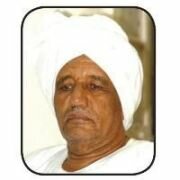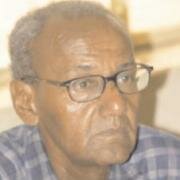(Sudanow) - This week the leader of the Popular Congress Party (PCP) Dr. Ali Al-Haj is scheduled to meet officials
from the Sudanese Revolutionary Front (SRF) in Bonn. Given the fact that PCP is a new comer joining the government and the contact though will be held along political party lines, but the government dimension will be there which will give the meeting some additional weight.
In fact Bonn meeting is a follow-up to series of meetings Al-Haj held with various political groups inside Sudan, including one with President Omar Al Bashir with the idea of exploring ways to revitalize the outcome of the National Dialogue.
Al-Haj insists that he does not carry a clear-cut initiative and he would rather listen and explore ways of how to further the National Dialogue results.
The scheduled meeting in Bonn is not the only activity as far as Sudan is concerned.
London hosted last week the first meeting between the foreign ministers of the two countries that was convened alongside Sudan Investment Forum. Though British foreign secretary Boris Johnson described his meeting with his counterpart Ibrahim Ghandour as “constructive”, but London did not miss the chance to raise its concerns regarding the issues of human rights and the need to move along to end the war.
Also last week the U.S. chargé d’Affaires in Khartoum, Steven Koutsis, called on the government and rebel groups to resume peace talks to end the armed conflicts in the country. He went further to say that, “the United States believes that time has come to move forward towards peace,” Koutsis said following his meeting with presidential aide Ibrahim Mahmoud, who is in charge of the ruling party and the chief negotiator.
“We urge the government and the armed groups to seize this opportunity and engage in constructive negotiations to achieve peace and stability in the country,” he added.
In this particular issue the government can excuse itself with the pretext that it does not know who to talk to given the split within the ranks of the SPLM-N that is battling the government in the two areas of the Blue Nile and Southern Kordofan. In fact days after Koutsis call, the SPLM-N faction led by Malik Agar accused its main rival the SPLM-N led by Abdel Aziz Al-Hilu of making preparations to attack its forces and positions in the Blue Nile.
Far away in Washington the advocacy group the Enough Project issued a report that cast some doubts on the seriousness of the government’s commitment to the five tracks that has been used to measure the progress made, and on the second stage of the Khartoum-Washington dialogue it urged the Trump administration to tie removing Sudan from the list of states sponsoring terrorism with specific measures in areas of religious freedom and democratic transformation.
Ghandour, who is the chief negotiator with the Americans stated several times that the five tracks and issues raised by his American counterparts are part of the national dialogue.
And that is exactly the missing link which renders such activity in world capitals less fruitful, because the home work that should have been done fell short of its targets.
The forthcoming meeting between Al-Haj and SRF in Bonn could make a difference if PCP focused its efforts and contacts to further and implement some of the National Dialogue outcome particularly in the areas of freedoms and tackling the issue of war and peace in the troubled areas.
The same applies to the dialogue with Washington. One wonders what would John Sullivan the Deputy Secretary of State would have been speaking about while visiting Al-Nileen University last month if the issue of religious freedom was handled through the parliament as has been suggested.
Clearly there is no lack of activity, initiatives or ability to engage with others, but what is missing is a bold political move with a clear strategic perspective and ability to put those scattered political developments into one form and forge ahead domestically to make a genuine political breakthrough that could be translated quickly into economic and security gains as well as diplomatic ones.
Short of that it is just another form of much ado about nothing, with very little, if ever, to show in terms of achievements. Worse it will be yet another lost opportunity at the time there is not much room left for such a loss.
-
Focus: The Unfortunate and Unnecessary Decision (2-2)Next >



